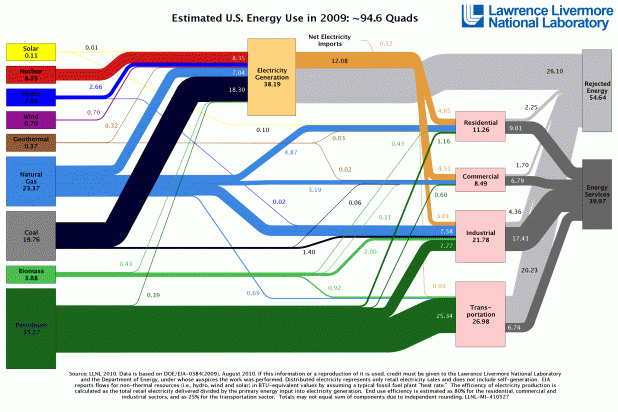
The Independent is running a story based on secret memos that show that oil companies were interested in getting their hands on Iraqi oil, and that this was a reason for the invasion in 2003.
A bit of naivety is useful here. Was oil really the motive? There are two reasons to think not: the Americans didn’t need the oil; and there wasn’t enough of it there.
The Americans didn’t need the oil
According to the US Energy Information Administration, the United States consumes at present around 19 million barrels per day of oil-derived products, making it the world’s largest user of oil. Total world oil production is about 87 million barrels per day, of which the United States therefore consumes about 22 per cent.
America is also the world’s third largest oil producer, producing 9.3 million barrels a day of oil in various forms, but nevertheless imports a further 11.7 million barrels a day of crude oil and refined petroleum products. Of this, it exports 2.0 million barrels a day of oil, so its net imports amount to 9.7 million barrels a day, or 52 per cent of its total oil consumption.
How do the Americans use this oil?

A fascinating chart published by the Lawrence Livermore National Laboratory shows that 39 per cent is used in transportation, with industrial use accounting for a further 32 per cent and residential and commercial use taking up the rest. No use of energy can be 100 per cent efficient, but it is surely striking that, of the energy used for transportation, only 27 per cent actually moves vehicles while the remaining 73 per cent is wasted. More energy efficient means of transport would reduce the demand for oil.
To give a simple example of what might be possible, compare European and American fuel economy standards for cars. (Al Gore comments on this difference in An Inconvenient Truth.) The EU is introducing a standard of 5 litres/100 km, while the US is settling for 6.6 litres/100 km, 32 per cent higher. If the US were to adopt the European fuel economy standard, demanding less fuel used for each mile driven, this would correspond to a reduction of 24 per cent in the fuel used for transportation, or 3.25 million barrels of oil a day. America currently imports about 2.3 million barrels a day from Arab countries, chiefly Saudi Arabia, Algeria and Iraq, that is to say, less than it wastes on its attachment to inefficient cars.
If the Americans were really concerned about oil supplies, they would seek to increase the fuel economy of their motor vehicles rather than seeking to invade and occupy the unstable countries where their oil comes from.
There wasn’t enough oil
Iraq has the world’s second largest proven reserves of oil, at 112 billion barrels, and in the past has produced around 2 million barrels per day, with the potential to produce up to 3 million. The oil price in 2003 was around $28 a barrel, which represents a total revenue of between $20 billion and $30 billion a year.
Figures on the cost of producing that oil are less certain. The costs are generally defined to include finding fields, developing them, lifting the oil and creating the necessary infrastructure, and Iraq is understood to be as cheap as anywhere in the world to do these things. So if we assume that oil production in Iraq costs on average around $17 a barrel, as in Kuwait, that suggests a profit of around $8 billion a year, or $12 billion at peak production. These sums of money sound large until they are put against the cost of the war itself.
The best survey of possible costs before the war, by William D Nordhaus, was that the simplest, quickest American victory would have cost $99 billion, with an upper limit of $1.9 trillion “if the US has a string of bad luck or misjudgments during or after the war”. An analysis published in 2008 by Joseph Stiglitz and Linda Bilmes put the actual cost even higher at $3 trillion.
On that basis, the cheapest war would have taken 8 years to pay for itself, assuming that the entire profits of the Iraqi oil industry could be confiscated by the Americans to pay for their invasion (about which international law might also have something to say). Rupert Murdoch was famously hopeful that the oil price would fall to $20 a barrel as result of the war, in which case Iraqi oil profits would take 30 years to pay for it.
If one takes instead the actual cost of the war, as calculated by Stiglitz and Bilmes, it soaks up 250 years of oil profits, while Iraq’s oil reserves will be exhausted in about 100 years. Quite simply, there isn’t enough oil in Iraq to justify the huge cost of invading it.
So surely, oil cannot have been the reason for America to invade. That would have been entirely foolish and a great mistake.
